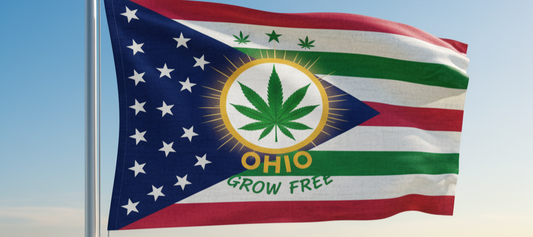Alcohol Industry Escalates Lobbying
Published on October 24, 2025
A Competitive Clash in Washington
WASHINGTON, D.C. — As hemp-derived THC beverages gain popularity as alternatives to traditional alcohol, major brewers, distillers, and industry groups are intensifying their federal lobbying efforts to shape regulations on these intoxicating products. Third-quarter 2025 disclosures reveal a notable uptick in advocacy from alcohol stakeholders, coinciding with congressional debates over potential THC bans and stricter oversight. This surge underscores growing tensions between the alcohol and cannabis sectors, with brewers seeking to protect their market share while pushing for public health safeguards.
Key Players and Lobbying Surge
Recent House and Senate lobbying reports highlight involvement from prominent alcohol companies and associations during July through September 2025. Entities such as Anheuser-Busch, Bacardi North America, Diageo North America, Molson Coors, and Moët Hennessy USA disclosed activities focused on hemp-derived THC regulations. Trade groups including the Beer Institute, Distilled Spirits Council, National Beer Wholesalers Association, Wine and Spirits Wholesalers of America, and Wine Institute also ramped up efforts, addressing issues like FDA enforcement on cannabis products and the legal status of hemp derivatives. 1
While exact expenditures per issue remain aggregated in disclosures, the reports indicate substantial resources directed toward educating lawmakers on intoxicating hemp beverages and advocating for differentiation from alcohol in taxation and regulatory frameworks. For instance, Anheuser-Busch lobbied on distinguishing beer from hemp products, while the Beer Institute targeted general regulation of intoxicating hemp. 1 This marks an expansion from prior quarters, with newcomers like Bacardi and Moët Hennessy joining established players like Molson Coors.
Arguments and Public Health Focus
Alcohol industry advocates frame their push as a matter of consumer safety and market fairness, emphasizing the need to prevent youth access to unregulated THC drinks and ensure consistent federal standards. Disclosures reference concerns over hemp products evading oversight under the 2018 Farm Bill, which allows low-THC items but has enabled a gray market for intoxicating beverages. Lobbyists argue for policies that treat these products like alcohol—subject to age restrictions, labeling, and taxation—to mitigate health risks and level the playing field. 1
This stance aligns with broader warnings from the FDA and CDC about unregulated cannabinoids, including potential for overconsumption and contamination. However, critics in the cannabis space view the efforts as protective measures against a rising competitor, as surveys show increasing numbers of consumers swapping beer for THC-infused seltzers and mocktails. 2
Targeted Legislation and Debates
The lobbying centers on key bills reauthorizing the Farm Bill and appropriations measures. The HEMP Act (S. 2113), monitored by the National Beer Wholesalers Association, aims to clarify hemp definitions and enforcement. 1 House appropriations legislation (H.R. 4121) advanced provisions for a full THC ban in hemp products, contrasting with the Senate's more lenient approach in S. 2256. 1
Other related bills include the SAFE Banking Act for cannabis financial access and the MORE Act for descheduling, though alcohol groups' focus remains narrower on hemp beverages. With the Farm Bill reauthorization looming, these debates could redefine intoxicating hemp's federal status, potentially imposing alcohol-like regulations or outright prohibitions. 1
Implications for Industries and Consumers
For the alcohol sector, these efforts represent a defensive strategy against market erosion, as THC drinks capture share in a $30 billion-plus beverage market. Success could safeguard traditional sales but stifle innovation in non-alcoholic alternatives. 2 Conversely, the cannabis and hemp industries face risks of restricted growth if bans pass, limiting a burgeoning segment projected to hit $2 billion by 2026. 3
Consumers may see improved safety through better labeling and testing if regulations advance, but at the cost of product availability. Non-cannabis players like DoorDash and PayPal also lobbied on related banking reforms, signaling wider economic ripple effects. 1 As President Trump eyes rescheduling decisions, this lobbying wave highlights the high stakes in bridging alcohol and cannabis policy. 4
Looking Ahead
With Farm Bill negotiations intensifying, alcohol's deepened involvement could tip the scales toward hybrid regulations blending oversight with innovation. Stakeholders on both sides urge balanced approaches to foster competition while prioritizing safety. Monitor updates from congressional committees for developments that could reshape beverage landscapes.
Conclusion
The alcohol industry's lobbying escalation on hemp THC drinks reveals a pivotal industry showdown, where regulatory clarity could either harmonize or hinder emerging markets. As debates evolve, the outcome will influence everything from corner-store shelves to Capitol Hill priorities. Share your take in the comments—what role should Congress play in regulating these alternatives?
Follow trusted sources for the latest on federal cannabis and hemp policy.
References
- Marijuana Moment, “Alcohol Industry Steps Up Lobbying On Hemp Drinks As Congress Debates THC Ban,” October 22, 2025. Link
- BDS Analytics, “Hemp Beverage Market Report,” 2025.
- New Frontier Data, “Cannabis-Infused Beverages Forecast,” 2025.
- Marijuana Moment, “Trump Indicates Imminent Rescheduling Decision,” August 2025.





